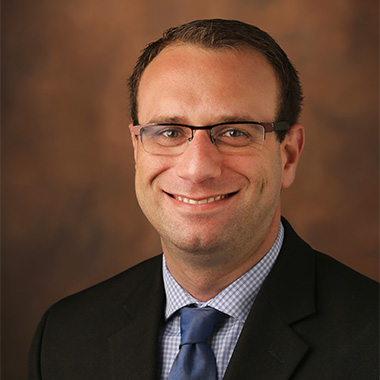If antiepileptic meds don’t prevent your seizures, you have other options.
If you’ve had epileptic seizures for more than a year and have tried at least two different antiepileptic medications that you tolerated well in terms of side-effects, your seizures may be considered drug resistant, according to the Epilepsy Foundation. That’s when it’s time for you and your doctor to consider other treatments.
“Approximately one-third of patients will remain refractory,” said Dario Englot, M.D., Ph.D., the Neurosurgical Director of Epilepsy at Vanderbilt. “What that means is two-thirds of patients will respond to the first or second drugs, but one-third of patients are going to have seizures that are resistant to drugs no matter which and no matter how many drugs they try.”
What about other solutions? Englot offers these options.
The importance of an epilepsy specialist
Many patients with epilepsy see general practitioners to manage their care, but these physicians may not be specialized. This can lead to problems with initial diagnosis and determining the origin of the seizures. Plus, it can limit the treatment options available to the patient. “This is really the crisis in epilepsy treatment in the U.S.,” he said, “because it’s a difficult disease to manage.”
Less than five percent of patients are managed by an epilepsy specialist, Englot said: “The average time that people have epilepsy before they are referred to a specialist at an epilepsy center is 20 years. And less than 20 percent are ever referred at all.”
Patients can find a specialist by reviewing facilities accredited by the National Association of Epilepsy Centers. Vanderbilt University Medical Center is the only level 4 epilepsy center in Tennessee for adults, for example, and it is one of only two level 4 centers in the state for childhood seizures, as well.
Dietary changes
Your epilepsy care specialist may work with you on nutritional changes that could help. “A ketogenic diet is one type of diet that some patients have responded to and had decreased seizures,” Englot said. The ketogenic diet is high in fat and low in carbohydrates, according to the Epilepsy Foundation. It should be prescribed by your doctor and monitored with the help of a dietitian.
Surgical interventions
“The jump to surgery is not as big of a leap as it used to be,” Englot said. Historically, surgery for epilepsy meant a craniotomy, which is a larger procedure that requires a several-day hospital stay followed by a lengthy recovery. “When people think of surgery, that’s still what comes to mind,” Englot said. “But we now have a spectrum of many different procedures to both diagnose and treat epilepsy, including minimally invasive options.”
While many procedures for epilepsy involve brain surgery, vagus nerve stimulation does not. In this procedure, a surgeon will implant an electrode into the patient’s neck at the vagus nerve, a nerve that connects to the brain. A pacemaker-like device is then implanted into the chest and connected to the electrode. “Stimulating that nerve decreases seizures in many patients,” Englot said.
Cannabis considerations
“Cannabis is an area of research that’s now being explored at certain centers and helping certain patients,” Englot said. He’s referring to oral-based treatments like cannabidiol, commonly known as CBD oil.
These are treatments without the tetrahydrocannabinol (THC), the main psychoactive ingredient in cannabis. There is a caveat with CBD oil. “It’s not available to everybody, and that’s an issue,” he said. “It’s something that needs to continue to be discussed because the associated stigma with cannabis products ends up limiting treatment options that work for patients.”
Find more information from the experts
My Southern Health provides information on a variety of health, wellness, family and food topics. Visit our blog to see what information you can find to turn your life or a loved one’s life around.

The experts at the Vanderbilt Epilepsy Center evaluate and care for adult and pediatric patients who are experiencing a range of symptoms — from mild seizures to more complex epilepsy disorders — as well as patients who have been diagnosed with medication-resistant epilepsy. The center provides a full range of the latest medications and non-medication treatment options.


